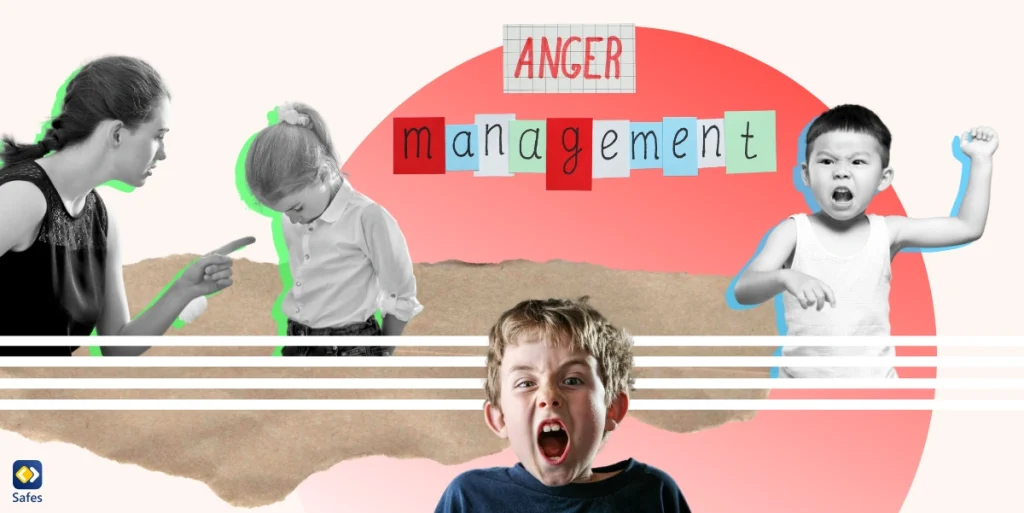In the rapidly evolving digital world, the concept of play has transformed significantly, often leading to play deprivation in children. This modern dilemma is a growing concern, as play is a critical component of childhood development. From building social skills to enhancing cognitive abilities, the benefits of play are extensive and deeply rooted in the overall growth of a child. However, in the face of increasing screen time, the natural inclination for physical and imaginative play is waning. Parents are now facing the challenge of balancing the digital and physical aspects of their children’s lives.
Download and Start Your Free Trial of the Safes Parental Control App
The Critical Role of Play in Child Development
As mentioned before, games play an extensive role in the formative years of a child’s upbringing. And if parents don’t pay enough attention to this important aspect of children’s lives, they’re missing a lot.
Benefits of Play in Childhood
Play is more than a simple pastime; it is an important aspect of a child’s growth. This process significantly influences a child’s mental, physical, emotional, and social well-being. Engaging in play activities helps in developing vital skills like language, self-regulation, and social interaction, which contribute to building a healthy brain and personality. These skills are not only crucial for their current development but also lay the groundwork for their future well-being.
In the formative years of life, play plays an integral role. During early childhood, which begins even before birth and extends up to age 8, children go through a crucial period of development. The experiences and opportunities presented during this time are foundational, shaping how children grow, learn, and build relationships. This period is crucial for preparing them for school and life in general. Parents play an essential role in this phase, as their involvement in their child’s play is a vital aspect of proper parental care.
Consequences of Play Deprivation
Children’s deprivation of play can lead to severe consequences in a child’s development. When play is restricted, children who sustained moderate to severe play deprivation may struggle with processing the world around them, leading to developmental delays in various areas. Notably, play deprivation has been linked to the underdevelopment of important areas in the prefrontal cortex, a region of the brain critical for complex cognitive behavior, personality expression, decision-making, and moderating social behavior.
Play deprivation may cause isolation, increased prevalence of depression, low self-control, and low resilience among other long-term effects. Such long-term impacts involve a child’s capacity to cope with stress and build up peer relations. Psychologically speaking, children without sufficient play often show serious emotional dysregulation. It can show itself in higher rates of depression, an inflexible thinking mode, diminished impulse control, and less self-regulation.
Moreover, the absence of sensory stimulation through games may cause unstable behavior, neurological disorders, unhappiness, as well as overall deterioration of psychological health and brain development. These effects reinforce the need for the children to experience free play, especially during their first decade as this time marks the most important phase of emotional and cognitive development.

Implementing Effective Strategies to Combat Play Deprivation
Play deprivation is a real issue, but there are several strategies that parents and educators implement to battle the adverse effects it might have on child development.
Balancing Screen Time and Playtime
In today’s digital age, managing screen time is crucial for children. Excessive screen time can lead to various issues, such as sleep problems, behavioral disorders, and reduced physical activity. The light emitted from screens can interfere with sleep cycles, potentially causing insomnia. Children who spend too much time on screens may also exhibit behavior disorders like conduct disorder, oppositional defiant disorder, and even obsessive-compulsive disorder (OCD).
However, it’s not all negative. The advantages of video games for personal skills should not be ignored. They can improve problem-solving, decision-making, and creativity. Playing video games may also enhance learning, health, and social skills. In fact, children who play video games have shown better performance in tests of working memory and impulse control.
It’s true that the modern world has brought new challenges to the already difficult task of parenting, but let’s not forget that advances in today’s world also mean new tools to help you in this process. There are always Windows parental controls or parental controls on Android that can help you balance screen time. Tools like our parental control app, Safes, however, can offer a variety of options to help parents manage screen time effectively, ensuring a healthy balance between digital and real-world interactions. You can download Safes on iOS or Android. Sign up for a free trial to access resources that promote healthy, balanced lifestyles for your children.
Promoting Social and Outdoor Activities
The value of social skills and play experience gained through outdoor activities cannot be overstated. Outdoor play is instrumental in helping children develop physical strength, social skills, and mental well-being. It provides opportunities for making friends, solving problems, and building relationships within peer groups. Such activities also instill respect for nature and encourage healthy forms of physical interaction and imagination.
Encouraging children to participate in playdates, family activities, and community service can further enhance these benefits. Community service, in particular, offers a unique opportunity for children to engage in social play while contributing positively to their community.
Creating a Play-Friendly Environment at Home
It’s important for family members to provide an environment at home that is conducive to play. This includes setting up designated play areas and choosing engaging and educational toys. Play spaces should be safe, accessible, and stimulating to encourage creativity and exploration. Household chores can also be turned into games, making daily tasks both fun and educational.
Incorporating sensory play is also beneficial. Sensory toys and activities can help meet a child’s developmental needs and encourage them to explore their environment more fully. This type of play is not only pleasurable; it is also an important aspect of a child’s learning and development process.

Reflection and Action: Ensuring a Balanced Routine
Parents should take time to reflect on their children’s daily routines. Are there enough opportunities for free play? Is the balance between screen time and playtime optimal? By intentionally incorporating free play, parents can significantly contribute to their children’s overall growth and well-being. This balanced approach ensures that children develop a broad range of skills essential for their holistic development.
The Transformative Power of Play
In the heart of Mother Teresa’s Orphanage, run by the Missionaries of Charity, a fascinating study unfolded, shedding light on a crucial aspect of child development often overlooked in foster care: playtime. Recognizing that while the physical needs of children in orphanages are generally met, play—the cornerstone of healthy psychosocial development—tends to be neglected. The study embarked on an innovative journey to understand the impact of structured play on these young, impressionable minds.
The experiment involved 30 children living in the orphanage, aged between 6 months and 2.5 years, embarking on a structured ‘Regime of Play’ where children played according to a daily routine. This wasn’t just any play; it was carefully designed to maximize developmental benefits. After three months, the children were reassessed, and the results were nothing short of remarkable. Significant improvements were observed in their motor, mental, and social development. It was a clear testament to the power of play in accelerating children’s growth and learning.
But the benefits didn’t stop there. The introduction of regular play sessions transformed the orphanage’s environment. The children became more active, playful, responsive, and surprisingly independent. This change had a ripple effect, easing the workload of the caretakers who initially thought that playtime would add to their responsibilities. Instead, the children’s increased engagement and independence reduced their reliance on constant adult attention.
The study, aptly titled “Not by bread alone: impact of a structured 90-minute play session on development of children in an orphanage,” serves as a powerful reminder. It highlights that children’s growth encompasses more than just fulfilling their basic physical needs. Play is an indispensable ingredient in their developmental recipe, essential for nurturing well-rounded, healthy individuals. This research underscores the fact that play is not just a mere pastime but a critical element in a child’s developmental journey, particularly in settings where it’s often underprioritized.
Embracing the Balance
In summary, the essence of child development hinges on a harmonious balance between structured activities and free playtime. Parental involvement is key in cultivating a nurturing play environment. By thoughtfully integrating these elements, we can ensure our children thrive in all aspects of their growth and development.
Your Child’s Online Safety Starts Here
Every parent today needs a solution to manage screen time and keep their child safe online.
Without the right tools, digital risks and excessive screen time can impact children's well-being. Safes helps parents set healthy boundaries, monitor activity, and protect kids from online dangers—all with an easy-to-use app.
Take control of your child’s digital world. Learn more about Safes or download the app to start your free trial today!




